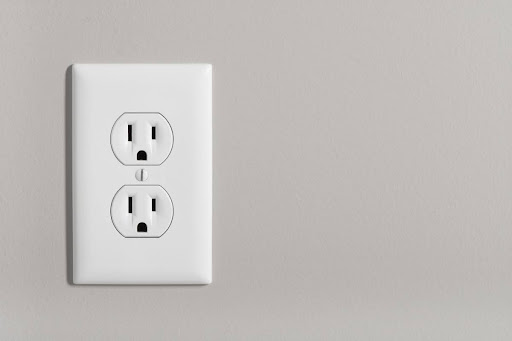
The Difference Between Grounded and Ungrounded Outlets
Outlets. They’re everywhere in our homes — powering our electronics, charging our devices, and keeping the lights on. But did you know that not all outlets are created equal? There’s a notable distinction between grounded and ungrounded outlets, and understanding this difference could be a game-changer for your home’s safety and electrical efficiency.
Reynolds Electric and Plumbing is shining a light on the unique features of each type of outlet, including how they work, which ones are better, and why you should hire a licensed pro to handle your electrical system. If you’re ready to switch up your home’s outlets, give us a call. We offer a suite of electrical services for electrical outlets, circuit breakers, and more!
Signs It’s Time to Replace Your Outlets
Before we dive into the specifics, let’s talk about when it’s time to consider upgrading your outlets. If any of these sound familiar, it may be time to consult a professional electrician about a potential outlet upgrade. Some telltale signs include:
- Your outlets feel loose or wobbly when you plug something in.
- You notice scorch marks or discoloration around the outlet.
- Your outlets don’t seem to be providing the power they once did.
- You’ve experienced repeated power surges or electrical issues.
What Are Grounded Outlets & How Do They Work?
The grounded outlet is the modern standard for residential electrical systems. These outlets feature two vertical slots and a rounded third prong below them. The third prong connects to a ground wire that directs stray electricity safely away from people and appliances, significantly reducing the risk of electrical shock or fires.
Ground wires act like safety nets. In the event of a wiring malfunction or a power surge, excess electricity finds its way to the ground instead of traveling through a person or an appliance. Commonly installed in areas like kitchens and bathrooms, ground fault circuit interrupters add an extra layer of protection by cutting power when they detect irregular current flow.
Understanding Ungrounded Outlets
An ungrounded outlet, easily identified by its two vertical slots, lacks the safety of a ground wire. Often found in older homes, these outlets were suitable for earlier electrical needs but fall short of today’s safety standards. Without a grounding mechanism, ungrounded outlets cannot redirect stray currents, increasing the likelihood of an electrical shock or an electrical fire from occurring.
Using modern appliances with ungrounded outlets can also create issues. Devices designed for grounded connections may overload ungrounded outlets, leading to frequent power surges or damaged electronics. While ungrounded outlets might still function, they no longer meet the safety requirements outlined in modern electrical codes.
Benefits of Making the Switch to Grounded Outlets
Do you want peace of mind knowing your home is safer makes the investment worthwhile? Then, a properly grounded outlet is for you. Beyond the safety assurance of avoiding electrical accidents, switching to grounded outlets offers a host of other advantages, such as:
- Improved electrical efficiency: With a proper ground wire, your devices and appliances can operate at their peak performance, reducing the risk of power surges or brownouts.
- Increased property value: Modernizing your home’s electrical system with grounded outlets can be an attractive selling point for potential buyers.
- Compatibility with newer devices: Many contemporary electronics, including laptops, TVs, and power tools, are designed to be used with three-prong, grounded outlets.
Why Only an Electrician Should Handle Your Outlet Upgrade
While the benefits of upgrading to grounded outlets are clear, it’s important to note that this is a task best left to the professionals. Attempting to modify your home’s electrical system without the proper training and expertise can be extremely dangerous, both immediately and in the long term.
A qualified electrician, like those at Reynolds Electric and Plumbing, has the skills and experience to safely assess your current electrical setup, identify any issues, and perform the necessary upgrades to ensure your home’s outlets meet modern safety standards. They’ll also be able to provide guidance on the most suitable outlets for your specific needs and ensure your home’s electrical system is running at its optimal efficiency.
Tips to Prevent Early Outlet Burnout
With both a grounded and ungrounded outlet, regular maintenance can extend its lifespan and improve performance. Here are some simple steps that can help your outlets stay functional and safe for years to come.
- Avoid overloading outlets by plugging in too many high-powered devices at once.
- Use surge protectors to guard against power surges that can damage outlets and electronics.
- Inspect outlets regularly for signs of wear, such as loose connections or discoloration.
- Replace outdated appliances with energy-efficient models that place less strain on your electrical system.
- Keep moisture away from outlets to prevent corrosion and short circuits.
Outstanding Outlet Questions? Call Reynolds Electric and Plumbing!
Understanding the difference between grounded and ungrounded outlets is just the first step toward a safer and more efficient home. If you’re unsure whether your outlets meet modern safety standards, Reynolds Electric and Plumbing is here to help. Our licensed electricians can assess your home’s electrical system, recommend upgrades, and complete the work with skill and care. Call us today to schedule an inspection or consultation. We’ll help you power your home safely and confidently!
